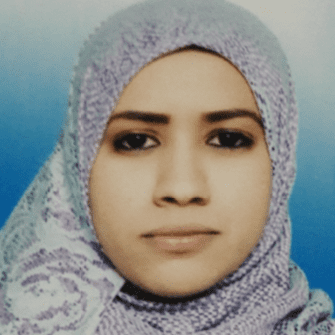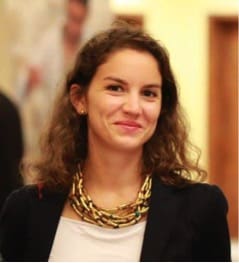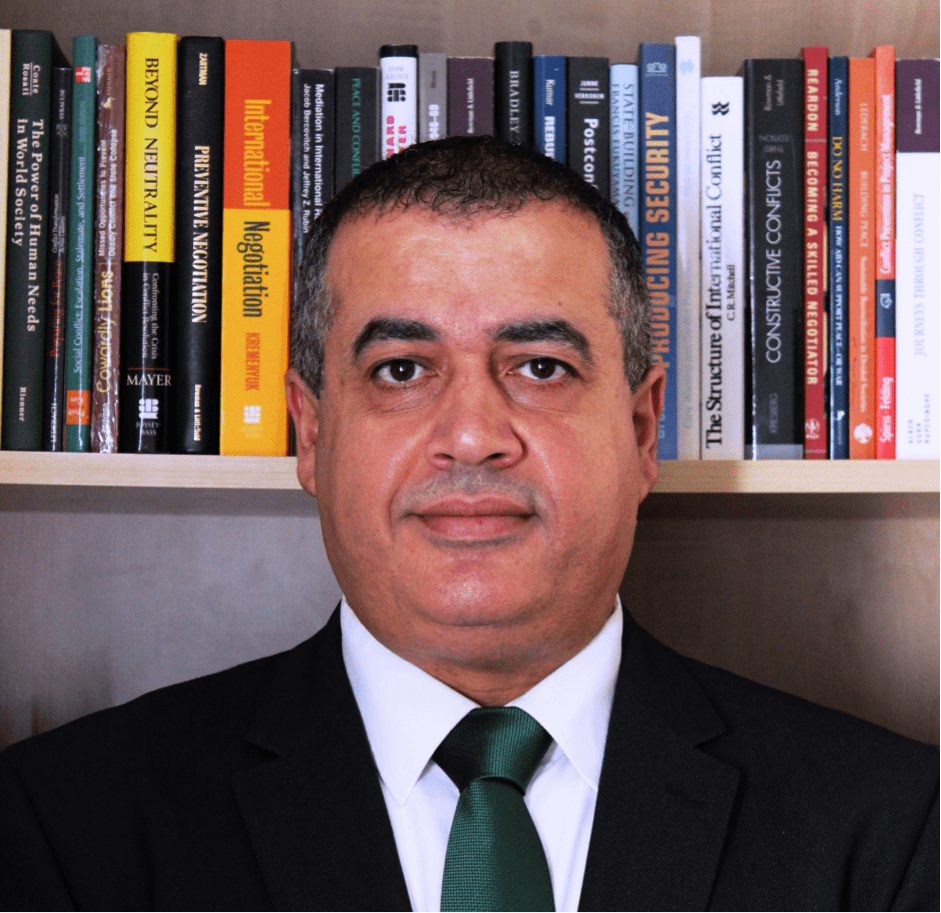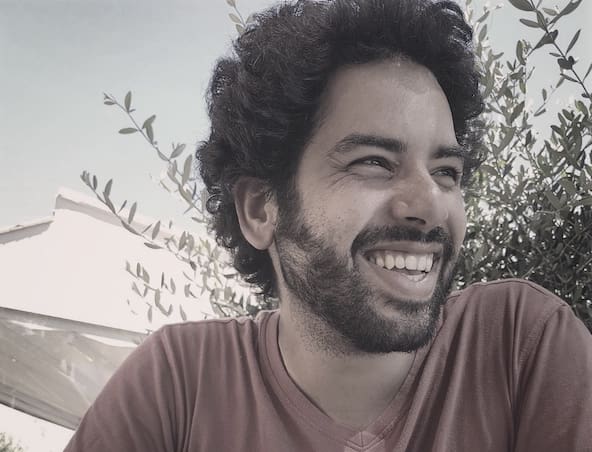Isra Namey

Al-Shabaka Policy Member Isra Namey is a journalist based in the Gaza Strip. Namey graduated from the Islamic university of Gaza in 2015, obtaining a degree in English Literature. She reports from Gaza and writes for Electronic Intifada, Mondoweiss, and al Jazeera English.
Inès Abdel Razek

Inès Abdel Razek is the Executive Director of the Palestine Institute for Public Diplomacy (PIPD) and its digital platform Rabet, an independent Palestinian organization focusing on international mobilization and digital campaigning for Justice, Freedom and Equality. From 2019 to 2022, Inès was the Advocacy Director of the PIPD, helping to develop the political networks and international advocacy pillar of the organization. Prior to joining the PIPD, Inès held policy advisor positions in the Union for the Mediterranean in Barcelona, the UN Environment Programme in Nairobi and the Palestinian Prime Minister’s Office in Ramallah, where she advised executive leadership on international aid for development policies. Inès is also a board member of the social enterprise BuildPalestine, Advisory board member of Palestine DeepDive, and policy member at Al-Shabaka, the Palestinian Policy Network. She holds a Master’s degree in Public Affairs from Sciences-Po, Paris. Twitter: @InesAbdelrazek
Ibrahim Fraihat

Al-Shabaka Member Ibrahim Fraihat is a professor of international conflict resolution at the Doha Institute for Graduate Studies, and Affiliate Scholar at Georgetown University. He previously served as Senior Foreign Policy Fellow at the Brookings Institution, and taught international conflict resolution at George Washington University and George Mason University. His latest book is Unfinished Revolutions: Yemen, Libya, and Tunisia after the Arab Spring (Yale University Press, 2016). He is the recipient of George Mason University’s Distinguished Alumni Award (2014) for his achievements in the field of conflict resolution. Fraihat can be followed on Twitter @i_farihat.
Hazem Jamjoum

Al-Shabaka Policy Member Hazem Jamjoum is a graduate student in Modern Middle East History at New York University. His writing has focused on political-economy approaches to Israeli colonialism and Palestinian elite formation, and critiques of partition-based conflict management “solutions,” among other areas.
Hanna Alshaikh

Al-Shabaka Member Hanna Alshaikh is an adjunct professor at DePaul University, teaching courses on political Islam, the intersections of religion and politics in the Middle East, and Islamic thought. Hanna is also a research fellow at the American Friends Service Committee, working on an oral history project on the Palestinian diasporic narrative, activism, immigration, and intergenerational issues. She holds a BA from DePaul University, where she double majored in Islamic World Studies and Arabic, and earned her MA from the University of Chicago’s Center for Middle Eastern Studies (CMES). Her research focused on social and intellectual history in the late Ottoman Palestine.
Hani al-Masri

Hani Al-Masri is Director General of Masarat, the Palestinian Center for Policy Research and Strategic Studies. He founded and was director general of the Palestinian Media, Research and Studies Centre, Badael, between 2005 and 2011. He has published hundreds of articles, research and policy papers in Palestinian and Arab magazines and newspapers including Al-Ayyam and Al-Safir. He previously served as General Manager of the Printing & Publication Department at the Ministry of Information and as a member of the Committee on Government in the Commission of Dialogue held in Cairo in 2009. He is a member of the board of trustees at the Yasser Arafat Foundation.
Halla Shoaibi

Halla Shoaibi is an S.J.D candidate at American University Washington College of Law in Washington, DC. Prior to that, she served as an Associate for two years at Kamal & Associates, Attorneys and Counselors at Law in Ramallah. Halla holds a masters degree in law from University of Michigan and an LL.B from Birzeit University. Her areas of interest are international criminal law and women’s rights.
Haidar Eid

Haidar Eid is Associate Professor of Postcolonial and Postmodern Literature at Gaza’s al-Aqsa University. He has written widely on the Arab-Israeli conflict, including articles published at Znet, Electronic Intifada, Palestine Chronicle, and Open Democracy. He has published papers on cultural Studies and literature in a number of journals, including Nebula, Journal of American Studies in Turkey, Cultural Logic, and the Journal of Comparative Literature. Haidar is the author of Worlding Postmodernism: Interpretive Possibilities of Critical Theory and Countering The Palestinian Nakba: One State For All.
Fathi Nimer

Fathi Nimer is Al-Shabaka’s Palestine policy fellow. He previously worked as a research associate with the Arab World for Research and Development, a teaching fellow at Birzeit University, and a program officer with the Ramallah Center for Human Rights Studies. Fathi holds a master’s degree in political science from Heidelberg University and is the co-founder of DecolonizePalestine.com, a knowledge repository for the Palestinian question. Fathi’s research revolves around political economy and contentious politics. His current focus is on food sovereignty, agroecology, and the resistance economy in Palestine.








